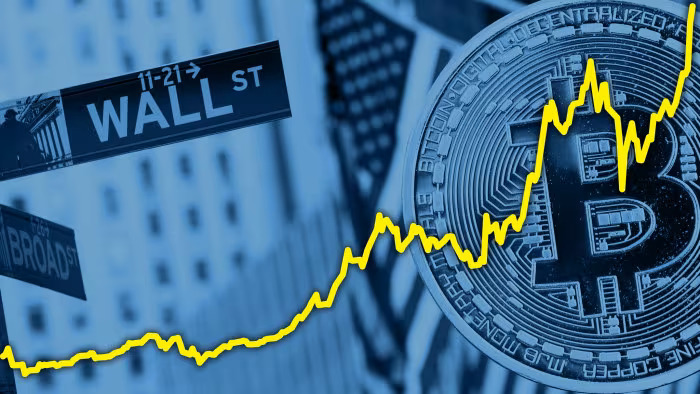Has Wall Street taken over Bitcoin
Institutional investment can help to legitimize Bitcoin and make it more accessible to a wider range of investors.

Bitcoin was created in 2009 as a decentralized digital currency that could be used without the need for a central bank or financial institution. However, in recent years, there has been a growing trend of Wall Street institutions and investors entering the Bitcoin market. This has led to concerns that Wall Street is "taking over" Bitcoin and that the cryptocurrency is losing its decentralized nature.
Evidence of Wall Street's influence on Bitcoin
There is a number of evidence to suggest that Wall Street is having a significant influence on the Bitcoin market.
- Institutional investment: Institutional investment in Bitcoin has been growing rapidly in recent months. Major financial institutions such as JPMorgan Chase, Goldman Sachs, and Fidelity are now offering Bitcoin investment products to their clients. This influx of institutional money is helping to drive up the price of Bitcoin.
- Bitcoin futures and ETFs: The launch of Bitcoin futures and ETFs has made it easier for institutional investors to invest in Bitcoin. Bitcoin futures are contracts that allow investors to bet on the future price of Bitcoin. Bitcoin ETFs are traded on stock exchanges and allow investors to track the price of Bitcoin without having to buy the cryptocurrency directly.
- Bitcoin mining: Bitcoin mining is the process of creating new Bitcoins. In recent years, there has been a growing concentration of Bitcoin mining power in the hands of a few large companies. This has led to concerns that these companies could manipulate the Bitcoin network.
Impact of Wall Street's influence on Bitcoin
Wall Street's influence on Bitcoin has had a number of impacts on the cryptocurrency.
- Increased volatility: The influx of institutional money into the Bitcoin market has led to increased volatility. This is because institutional investors often trade in large volumes, which can move the price of Bitcoin quickly.
- Reduced decentralization: The concentration of Bitcoin mining power in the hands of a few large companies has reduced the decentralization of the Bitcoin network. This is because these companies could potentially manipulate the network.
- Increased regulation: The growing involvement of Wall Street in the Bitcoin market has led to increased regulatory scrutiny. Governments around the world are still grappling with how to regulate Bitcoin and other cryptocurrencies.
It is clear that Wall Street is having a significant influence on the Bitcoin market. This influence has had a number of impacts on Bitcoin, both positive and negative.
On the one hand, the influx of institutional money has helped to drive up the price of Bitcoin and make it more mainstream. On the other hand, it has also led to increased volatility, reduced decentralization, and increased regulatory scrutiny.
It is still too early to say whether Wall Street will ultimately "take over" Bitcoin. However, it is clear that Wall Street is now a major player in the Bitcoin market and that its influence will continue to grow in the years to come.
Additional thoughts
In addition to the evidence and impacts mentioned above, it is also worth noting that Wall Street's influence on Bitcoin is likely to continue to grow in the future. This is because Bitcoin is becoming increasingly mainstream and institutional investors are looking for ways to invest in cryptocurrency.
It is important to note that Wall Street's influence on Bitcoin is not necessarily a bad thing. Institutional investment can help to legitimize Bitcoin and make it more accessible to a wider range of investors. However, it is important to be aware of the potential risks associated with Wall Street's involvement, such as increased volatility, reduced decentralization, and increased regulatory scrutiny.
What's Your Reaction?
















